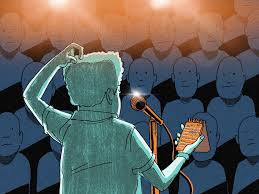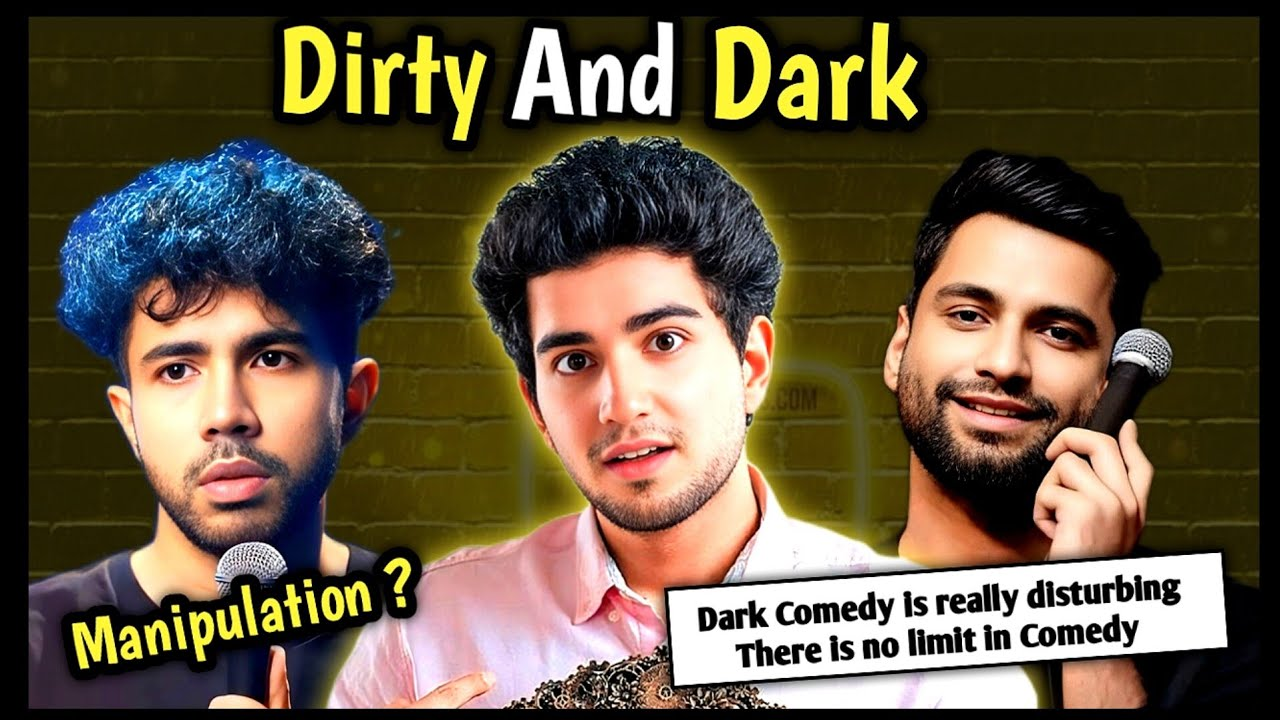Should Stand-Up Comedy Be Banned? Debating the Line Between Humor and Harm
Comedy has perpetually been a double-edged sword. It can, on one hand, bring people together, confront social conventions, and offer essential respite from the difficulties of life. Conversely, when humor turns into belittling comments, crudeness, or damaging clichés, it can sustain suffering and division. As sensitivity and inclusivity gain greater importance, the question emerges: should comedy be prohibited or controlled to avert harm? This debate compels us to scrutinize the delicate boundary that separates freedom of expression from the duty to prevent harm. Laughter is often referred to as the best medicine, but what happens when comedy causes pain? Whether in stand-up comedy or sitcoms, humor can serve to amuse, stimulate reflection, and even confront authority figures.
However, jokes that depend on derogatory language, vulgar content, or offensive stereotypes can alienate and hurt audiences. With a growing awareness in society of the effects that words can have, discussions regarding a potential ban or limitation on comedy are becoming more vigorous. Could we safeguard freedom of expression while making sure that comedy remains within the bounds of safety?
For a long time, comedy has served as a societal mirror, showcasing its imperfections, absurdities, and victories. However, with the increasing interconnection and diversity of the world, the limits of what is deemed humorous—or permissible—are in a state of constant flux. Some contend that comedy should allow for free expression without restrictions, while others think that derogatory comments, vulgarity, and harmful content should not be part of humor. Is it necessary to ban or censor comedy in order to avert damage, or does this kind of action endanger creativity and free expression? Weighing the value of laughter against the cost of offense is a challenge posed by this debate.
The Role of Comedy in Society
Comedy has consistently been essential to society, acting as both a reflection and a driver of change. By means of parody, satire, and humor, comedians can uniquely critique authority, question societal norms, and draw attention to injustices in ways that are engaging and accessible. From the ancient court jesters to contemporary stand-up comedians, humor has served as a potent means for holding those in power accountable and igniting crucial discussions. Comedy can prompt contemplation and even promote social advancement by rendering serious subjects more accessible. Aside from serving as a vehicle for social critique, comedy helps to build connection and community.
Laughter that is shared by all serves as a universal tongue, one that rises above cultural, linguistic, and social barriers. Humor unites people and fosters moments of joy and solidarity, whether through a clever sitcom, a stand-up comedy special, or an online meme. Comedy could remind us of our common humanity and offer a sense of belonging in a world frequently split apart by differences. Nevertheless, comedy has its own intricacies. Although it has the power to elevate and bring together, it can also estrange and injure when it is based on insulting comments, stereotypes, or crude material. The difficulty is in finding an equilibrium between the liberty to amuse and the duty to prevent harm.
The Case for Regulating Comedy
Derogatory Remarks Could Perpetuate Harm:- Jokes that rely on racial, gender, or religious stereotypes may be framed as harmless fun, but their impact can be far-reaching. Such humor often reinforces harmful biases and perpetuates discrimination, normalizing prejudice under the guise of entertainment. While comedians may argue that they are "just joking," the emotional and psychological toll on marginalized groups cannot be ignored. When comedy trivializes serious issues or mocks vulnerable communities, it contributes to a culture of intolerance and exclusion, making a strong case for why certain types of humor should be regulated.
Vulgar Content Could Cross the Line:- Vulgarity in comedy could serve a purpose, whether for shock value, satire, or pushing boundaries. However, when humor becomes excessively crude or relies solely on explicit content, it risks alienating audiences and diminishing its artistic merit. Gratuitous vulgarity can normalize inappropriate behavior and desensitize viewers to issues that deserve thoughtful consideration. By regulating comedy that crosses this line, society can encourage more meaningful and creative expressions of humor that resonate without resorting to cheap or offensive tactics.
Power Dynamics Matter:- Comedy often thrives on challenging authority and societal norms, but the direction of its critique matters immensely. Punching "up" at those in power is widely seen as fair game, as it holds the influential accountable and exposes hypocrisy. However, punching "down" at marginalized or vulnerable groups only serves to reinforce existing power imbalances and further silence those who are already struggling to be heard. Regulating comedy to ensure it doesn't target the disadvantaged is essential for fostering a more equitable and compassionate society.
The Slippery Slope of Free Speech:- While free speech is a cornerstone of democratic societies, it is not without limits. Hate speech, for instance, is widely restricted due to its potential to incite violence and spread harm. Comedy that veers into similar territory—whether through hateful rhetoric, harmful stereotypes, or explicit vulgarity—should also face scrutiny. Allowing such content to go unchecked under the banner of "free expression" risks normalizing harmful behavior and undermining the values of respect and inclusivity that many societies strive to uphold. Regulation, in this context, becomes a necessary safeguard.
The Case Against Banning Comedy
Comedy is Subjective Humor is inherently subjective, shaped by individual experiences, cultural backgrounds, and personal sensibilities. What one person finds offensive, another might find hilarious, and vice versa. This subjectivity makes it nearly impossible to establish universal standards for what is considered acceptable comedy. Attempting to regulate humor based on subjective interpretations risks alienating diverse audiences and stifling the creative freedom that makes comedy so dynamic and relatable. After all, comedy thrives on its ability to resonate differently with each person, and imposing rigid rules could strip it of its essence.
Comedy Evolves with Society:- Comedy is a reflection of the times, evolving alongside societal attitudes and values. What was deemed acceptable or even groundbreaking decades ago might be considered outdated or offensive today, and vice versa. By banning or heavily regulating comedy, we risk halting this natural evolution and preventing important conversations about progress and change. Humor has the unique ability to challenge norms and provoke thought, often serving as a catalyst for societal growth. Restricting it could hinder its role as a mirror to society and a driver of cultural transformation.
The Importance of Intent:- Many comedians use provocative or controversial material not to harm, but to spark dialogue, challenge taboos, and shed light on uncomfortable truths. The intent behind a joke often matters more than the content itself. Banning comedy risks silencing voices that push boundaries for the sake of art, social commentary, or even activism. Comedians like George Carlin, Richard Pryor, and Hannah Gadsby have used humor to address complex issues, from inequality to mental health. By focusing solely on the potential for offense, we risk overlooking the profound impact that comedy could have in fostering understanding and driving change.
Censorship Sets a Dangerous Precedent:- Once we begin banning or heavily regulating comedy, where do we draw the line? Censorship is a slippery slope that can quickly spiral into suppressing dissenting opinions, creative expression, and even legitimate criticism. Comedy has historically been a safe space for challenging authority and questioning societal norms. Imposing restrictions on it could pave the way for broader limitations on free speech, undermining the very principles of open dialogue and artistic freedom. In a world where expression is already under threat in many corners, preserving the unfettered nature of comedy is more important than ever.
The Rise of Dark Comedy and Its Impact on Youth
The recent police case filed against popular influencers BeerBiceps (Ranveer Allahbadia) and Samay Raina has sparked a heated debate about the role of abusive language in comedy. Their content, which often includes ghalis and provocative remarks, has been criticized for crossing the line from edgy humor to outright offense. While some argue that this is just part of their comedic persona, others believe it sets a dangerous precedent, especially for younger audiences who idolize these influencers. The case serves as a wake-up call for content creators to rethink their approach to comedy. It’s a reminder that humor doesn’t need to rely on vulgarity or abuse to be funny—comedians could still entertain and connect with audiences without resorting to harmful language.
Comedy Without Ghalis: A Call for Responsible Humor:- The notion that comedy is incomplete without ghalis is a misconception that needs to be challenged. History is filled with examples of comedians who have mastered the art of making people laugh without relying on offensive language—legends like Johnny Lever, Kapil Sharma, and international icons like Jerry Seinfeld and Ellen DeGeneres have proven that clean, intelligent humor could be just as impactful. The current trend of using ghalis and derogatory remarks often stems from a desire to appear edgy or cool, but it ultimately detracts from the artistry of comedy. As influencers and comedians, there’s a responsibility to set a positive example, especially for younger audiences. By embracing humor that is inclusive, respectful, and creative, we could ensure that comedy remains a force for joy and connection, rather than division and harm.
Conclusion: Laughter with Responsibility
Ultimately, the future of comedy lies in its ability to evolve with society while staying true to its core purpose: bringing joy. As audiences, we have a role to play too—by supporting comedians who prioritize creativity over crudeness and by holding creators accountable when they cross the line. Let’s champion a culture of laughter with responsibility, where humor could thrive without causing harm. After all, the best comedy doesn’t just make us laugh; it makes us think, feel, and connect. And that’s something worth preserving.














Comments
Post a Comment